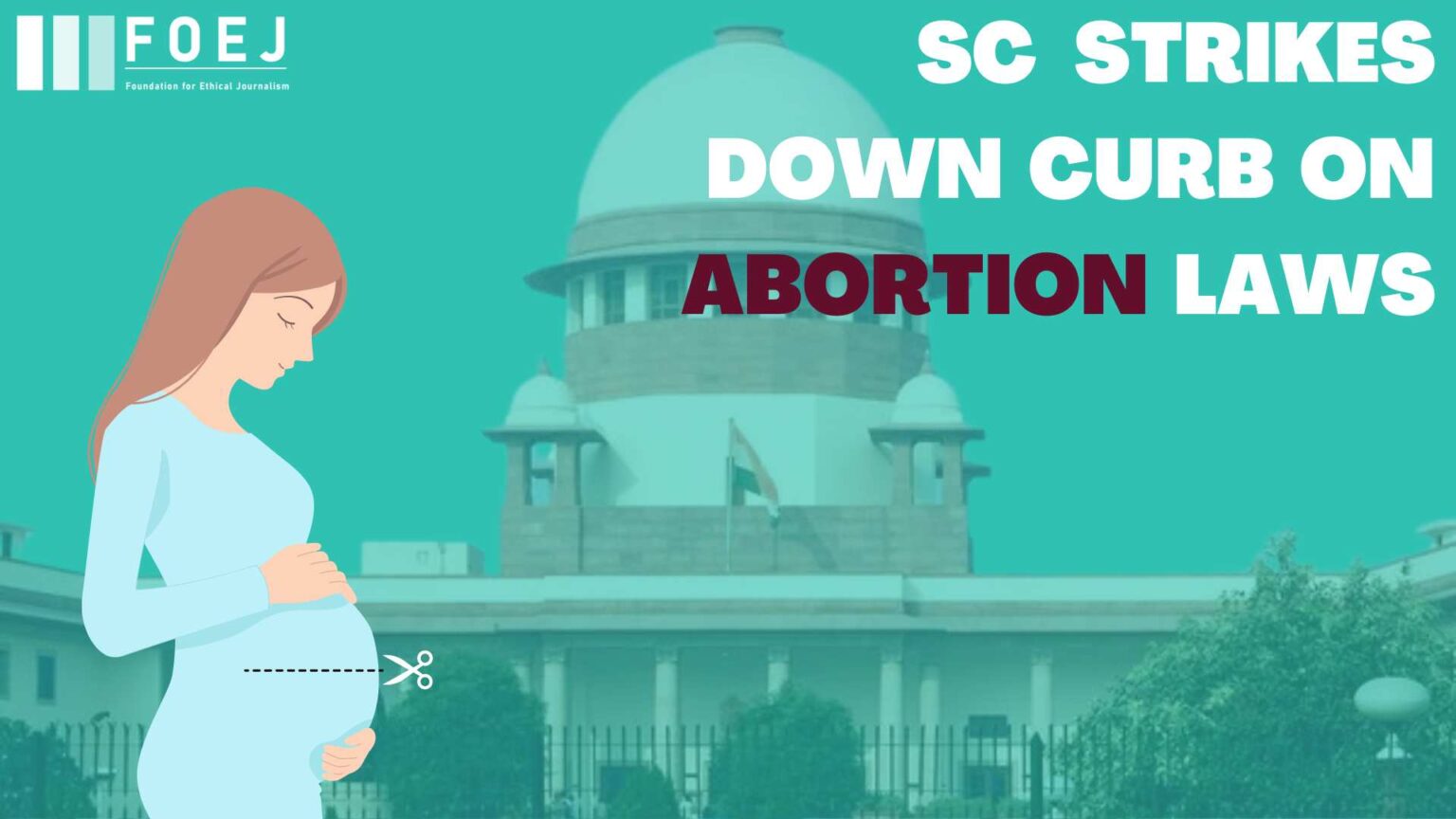On Thursday, the Supreme Court bench consisting of Justice D.Y. Chandrachud, Justice A.S. Bopanna and Justice J.B. Pardiwala expanded the scope of Section 3B of Medical Termination of Pregnancy Rules, 2003 as per which only certain sections of women were allowed to go for abortion under certain special circumstances.
The step hailed and appreciated over whole of the India because of its progressive attitude and granting sexual and reproductive autonomy to women without any interference by the third party.
The judgement of the apex court is preceded by a petition which sought to include unmarried women within the ambit of Rule 3B of the Medical Termination of Pregnancy Rules, 2003 which was amended in 2021 pertaining to abortions between 20 to 34 weeks. The Rule includes seven categories of women who can go for abortion with prior approval of two medical practitioners who are of the opinion that the continuance of pregnancy would risk the life of woman or the child.
Petition filed
The judgement was given on a petition filed by a 25 years old unmarried woman who was 22 weeks pregnant and was in a consensual relationship, later on being denied to marry. She filed petition in the Delhi HC seeking permission for abortion which was denied on the answer that petitioner being an unmarried woman is not shielded under the law.
The amendment of October 2021 was taken into consideration and the HC opined that the rules mentioned are constitutional and explicitly exclude unmarried women, the permission cannot be granted, further making the appeal before the Supreme Court.
In the same row, the Supreme Court on July 21 passed an interim order allowing the unmarried woman to go for abortion after the necessary medical approval given under the law.
The case involved the substantial question of law, hence on Thursday, the Supreme Court gave the explicit interpretation of the law.

Stance of court over the issue
The court while giving judgement reiterated that the main essence of Rule 3B is the women’s material circumstances. Change in the marital status also changes the material circumstances of the women. Material circumstances change when a pregnant woman divorces her husband or the husband dies leaving the wife alone. The presence of widowhood and pregnancy in brackets at the end of the Rule doesn’t not alter our interpretation.
Further, court expanded the Rule 3B(a) which include rape survivors, sexual assault survivors or incest survivors, to include married women in its ambit. However, the court does not purports to annihilate the marital rape exception under the Indian Penal Code.
The court further opined that under Rule 3B, a pregnancy caused by sexual assault inflicted by husband may also be terminated as assault whether by hands of stranger or husband have grave consequence of destructing the mental peace and rational thinking of the pregnant woman forcing her in a situation of absolute darkness. Hence, a married women inflicted with marital rape may also go for abortion under MTP Act. The ruling however does not aim to repeal the martial rape exception contained under Indian Penal Code.









